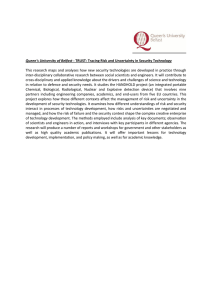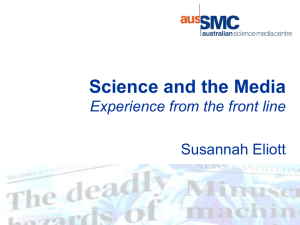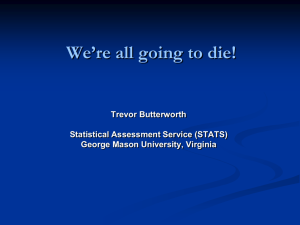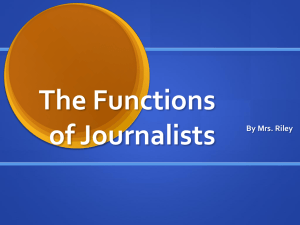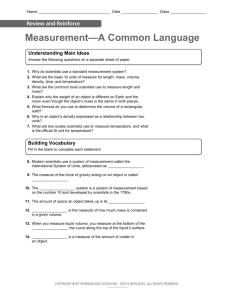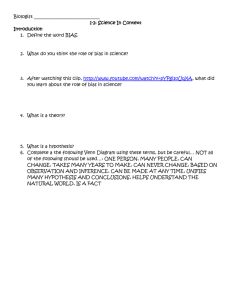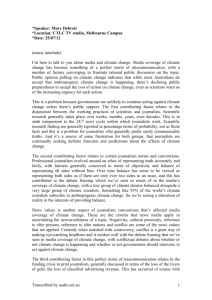Science-syllabus
advertisement
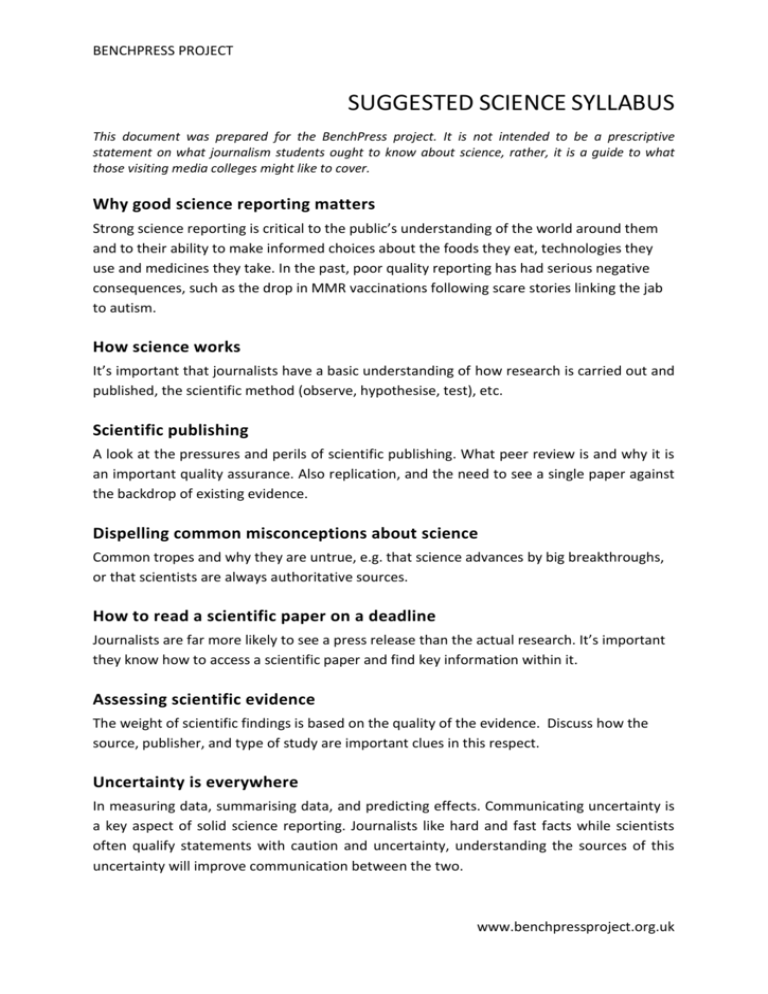
BENCHPRESS PROJECT SUGGESTED SCIENCE SYLLABUS This document was prepared for the BenchPress project. It is not intended to be a prescriptive statement on what journalism students ought to know about science, rather, it is a guide to what those visiting media colleges might like to cover. Why good science reporting matters Strong science reporting is critical to the public’s understanding of the world around them and to their ability to make informed choices about the foods they eat, technologies they use and medicines they take. In the past, poor quality reporting has had serious negative consequences, such as the drop in MMR vaccinations following scare stories linking the jab to autism. How science works It’s important that journalists have a basic understanding of how research is carried out and published, the scientific method (observe, hypothesise, test), etc. Scientific publishing A look at the pressures and perils of scientific publishing. What peer review is and why it is an important quality assurance. Also replication, and the need to see a single paper against the backdrop of existing evidence. Dispelling common misconceptions about science Common tropes and why they are untrue, e.g. that science advances by big breakthroughs, or that scientists are always authoritative sources. How to read a scientific paper on a deadline Journalists are far more likely to see a press release than the actual research. It’s important they know how to access a scientific paper and find key information within it. Assessing scientific evidence The weight of scientific findings is based on the quality of the evidence. Discuss how the source, publisher, and type of study are important clues in this respect. Uncertainty is everywhere In measuring data, summarising data, and predicting effects. Communicating uncertainty is a key aspect of solid science reporting. Journalists like hard and fast facts while scientists often qualify statements with caution and uncertainty, understanding the sources of this uncertainty will improve communication between the two. www.benchpressproject.org.uk BENCHPRESS PROJECT The Balance Problem At the heart of a good story is conflict. However, attempts to provide “balance” by presenting two different interpretations of a research finding can give scientific consensus and fringe theory equal footing. Scientists in the news Inevitably, journalists will need to turn to scientists for expert opinion. It’s useful to know where they can find a suitable expert and how to approach them. An understanding of the language of scientists is also useful: the importance of precision and caveats, and to watch out for words that have broad colloquial meanings but specific scientific ones. www.benchpressproject.org.uk
